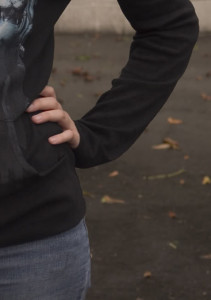Posts Tagged ‘disappointment’
Meet Grief’s Cousin, Disappointment
by Karen Batka, LMFT
 It was sometime during the third hour, as I sit on a cold and spiteful bench outside Arrivals, watching millions (!) of other travelers being collected and whisked away by their loved ones, that I diagnose him with TMD: Time Management Disorder. This was a problem, given we had a long distance relationship based on frequent airport meetings at Arrival and Departure gates. Every time I would land at his airport, I expected to either see him waiting at the gate or get a text message saying, “I am parked out front.” And every time, this did not happen. If nothing else, he was consistent about being late…verrrry late. Hours – not minutes.
It was sometime during the third hour, as I sit on a cold and spiteful bench outside Arrivals, watching millions (!) of other travelers being collected and whisked away by their loved ones, that I diagnose him with TMD: Time Management Disorder. This was a problem, given we had a long distance relationship based on frequent airport meetings at Arrival and Departure gates. Every time I would land at his airport, I expected to either see him waiting at the gate or get a text message saying, “I am parked out front.” And every time, this did not happen. If nothing else, he was consistent about being late…verrrry late. Hours – not minutes.
Once I was hauled off a plane on a stretcher due to a painful collision between my knee and the in-flight beverage cart; the paramedics meeting me at the gate suspected a fractured patella.
“We’ll have to take you by ambulance to the hospital unless there’s someone meeting you here who can take you for an x-ray,” said the paramedic.
“I’m sure he’ll be here shortly. Let me call him,” I said.
Me: “Hi. Where are you?”
Him: “Heading to the airport.”
Me: “How close are you?”
Him: “About 2 hours away.”
Me: “You live 2 hours away.”
Him: “I know… just leaving now.”
Me: “Then you’ll have to meet me at the ER; they’re taking me by ambulance.”
Three hours later, he arrives to find me slumped over in a wheelchair in the ER waiting room, hazy and drooling from too many painkillers. Hope seduced me into believing he would feel so guilty that he would never again be late to meet me. Not so.
I tried all kinds of tricks to get him to be on time, including lying, bargaining and negotiating. I also made direct requests. But nothing worked. I assigned meaning to his lateness: if he really loved/valued me than he would be on time. He had his own reasons and stories for every Failure-To-Be-On-Time. I continued to suffer in my story and scold myself for enduring his TMD for more than two years. I was angry with him – and myself – for allowing this painful experience to occur over and over again.
Three years after the end of our relationship, he returns to CA to visit. It is an hour past his scheduled arrival and he’s still not here. I purse my lips, drumroll my fingers on the chair, look at my watch for no reason and chant the refrain, “People should be on time.” My mind rapidly downloads snapshots of the times in my life when I’ve tried to escape or protect myself from grief’s cousin, disappointment.
What comes next surprises me. I have defended against feeling this feeling many times in my life but in this moment, as I sit outside alone – waiting once again for his arrival – I feel a wave of disappointment wash over me. And a thought arrives – pure, clear, calm and intimate – “I hoped we’d have more time together.”
This time was different. The ability to register my disappointment openly and honestly provided oxygen and breathed life into the experience, rather than allowing it to become yet another grievance or resentment stored in my body. The process of unkinking my thinking allowed my clenched jaw and crunched shoulders to relax.
 Disappointment is often born from an expectation that people or events should be different than they are. In his book, Forgive for Good, author Fred Luskin notes that, “When we do not have the power to make what we want happen, we suffer.” We develop what Luskin calls unenforceable rules – internal rules we create based on some belief about how we think others should behave yet we have no control or power to enforce them.
Disappointment is often born from an expectation that people or events should be different than they are. In his book, Forgive for Good, author Fred Luskin notes that, “When we do not have the power to make what we want happen, we suffer.” We develop what Luskin calls unenforceable rules – internal rules we create based on some belief about how we think others should behave yet we have no control or power to enforce them.
How can you identify your own unenforceable rules? Often they include the word should and are accompanied by feelings of helplessness or anger. For example, “life should be fair.” In my example, I was suffering from the belief that “people should be on time,” yet I have no power to control another’s punctuality.
So you might be wondering, is it wrong to hope? Nope. However, we can alleviate our own suffering and find peace not by making better rules but by noticing when healthy desires deteriorate into demands. Hope is a healthy striving for present and future experiences that guide us in the direction of what we want, while a demand often invokes suffering. Notice what happens when you exchange a requirement for a hope in one of your unenforceable rules.
What I saw in this moment was that by meeting and being with my own feeling of disappointment, I could own the feeling rather than push it away. It was a direction on the compass of my heart – the arrow pointing somewhere between West (anger) and South (sadness). As I sit with it in silence, I hear empathy (this is hard for me), followed by compassion (I’m sorry for my loss), followed by peace (let it go) and then an invitation (something needs to change). I discover that I can let in the feeling of being let down and move on.
This article first appeared in elephantjournal on October 12, 2013.
Karen Batka, MBA, MA, LMFT is a Marriage and Family Therapist specializing in Grief & Life Transitions in Marin County, CA. She works with individuals, couples, families and organizations and facilitates groups on Surviving and Thriving Through Life Transitions.
For more information, call 415.488.5565 or visit her website: www.embodhiwork.com
Tags: disappointment, forgiveness, Fred Luskin, grief, Karen Batka, psychotherapy, relationship, time
Posted in Change, Disappointment, Grief&Loss | No Comments »